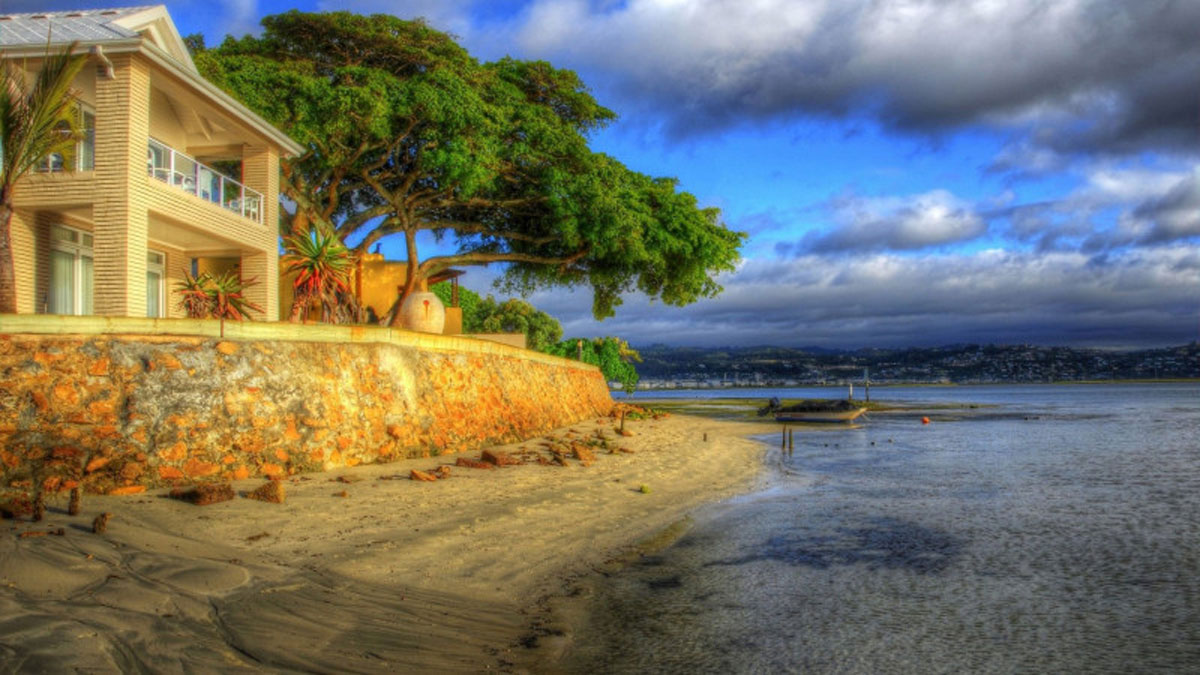Who hasn’t dreamed about it, your own house by the sea, where you can dine on the terrace, admire the sunset, walk along the beach whenever you want, and breathe healthy sea air? True, those who dared to realize this dream are sometimes surprised to find that it has almost more minuses than pluses. And it’s not just the climate, which is not suitable for everyone.
The main argument, because of which many do not dare to acquire housing by the sea: is real estate on the coast is considered elite “by default”. Even if it is built from scratch, it costs a pretty penny. In addition, most of the plots are already occupied, and if they are resold, then at inflated prices: there will still be a buyer.
Usually, houses by the sea are located in villages, from which the city is far away. This means that the prices for products in local stores are too high, while the assortment is meager. You need to either drive to the city by car, order delivery for a lot of money or fork out in Selma.
Problems with public transport
If you don’t have a car, life in a house by the sea will not seem like a paradise: you often need to walk a kilometer or more to a public transport stop in seaside villages. Imagine what a beautiful walk it is when it rains or the sun bakes.
High humidity
The most significant disadvantage of the maritime climate is high humidity. It provokes the growth of mold and contributes to the rapid destruction of materials. Houses in such zones should be placed at least 300-500 meters from the water (which means goodbye, gorgeous views) and always have means to fight infection in the arsenal.
Fences, swings, and gazebos in coastal areas have to be built from capital materials: stone, and brick. The tree is quickly destroyed (and to slow down the destruction, it is treated with varnishes and impregnations, in which there are few health benefits).
Neighbors
It happens that you live next door to a quiet married couple on the seashore. And after two years you look: they took and arranged a mini-hotel from their house. And it started: parties, screams of children, unfamiliar cars under the fence, and other delights. Goodbye, dreams of a quiet life.
Vacationers
Residents of coastal villages are often engaged in arranging the coastal zone themselves to relax comfortably and not travel far. Sooner or later, tourists flock to these beaches like bees to honey. You’ll be tempted to expel: some have left – others are already rushing to take their place. This constant alien presence is annoying and disturbing: you never know, they will climb to steal, they accidentally set something on fire, and they will start yelling songs or listening loudly until the morning.
And vacationers like to knock on the owners of houses: they will ask for water, then matches, or sell homemade wine. No rest.
Problems with utilities
Interruptions with water and light in seaside villages are a common occurrence. Due to the abundance of vacationers, strong winds, and even landslides, the old nets do not withstand. For several hours a day in houses by the sea, there may be no water or light. You need to either stock up on water or wait until it is given to start washing or freshen up in the shower.
Seasonal troubles
In summer, in extreme heat, the sea can bloom – and you can’t swim, and it smells far from roses. In autumn and spring, strong winds charge near the sea – it is unpleasant even to walk along the coast. There is no snow in winter, which is why it is especially sad on New Year’s Eve. In general, continuous nuances.
Annoyed
The proximity of the sea causes delight only at first. Then emotions smooth out, landscapes become boring, too lazy to go to the beach, and many happy owners of houses by the sea begin to notice the disadvantages of their homes. They also think that it would be nice to have an apartment in the city to take a break from the delights of resort life at the peak of the season when it is the hottest and most crowded.

